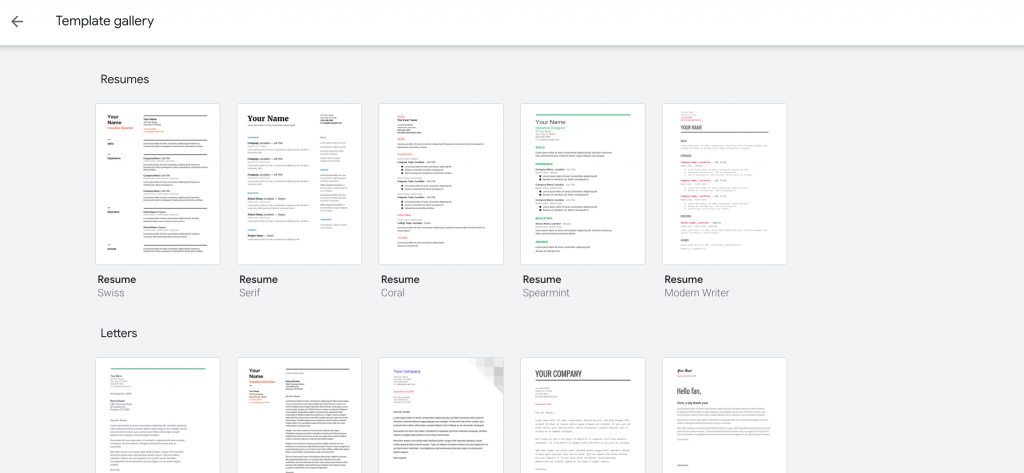Student-centric advice and objective recommendations
Higher education has never been more confusing or expensive. Our goal is to help you navigate the very big decisions related to higher ed with objective information and expert advice. Each piece of content on the site is original, based on extensive research, and reviewed by multiple editors, including a subject matter expert. This ensures that all of our content is up-to-date, useful, accurate, and thorough.
Our reviews and recommendations are based on extensive research, testing, and feedback. We may receive commission from links on our website, but that doesn’t affect our editors’ opinions. Our marketing partners don’t review, approve or endorse our editorial content. It’s accurate to the best of our knowledge when posted. You can find a complete list of our partners here.
How to Write a Scholarship Resume
 By
Will Geiger
By
Will Geiger 
Will Geiger is the co-founder of Scholarships360 and has a decade of experience in college admissions and financial aid. He is a former Senior Assistant Director of Admissions at Kenyon College where he personally reviewed 10,000 admissions applications and essays. Will also managed the Kenyon College merit scholarship program and served on the financial aid appeals committee. He has also worked as an Associate Director of College Counseling at a high school in New Haven, Connecticut. Will earned his master’s in education from the University of Pennsylvania and received his undergraduate degree in history from Wake Forest University.
Full BioLearn about our editorial policies

Bill Jack has over a decade of experience in college admissions and financial aid. Since 2008, he has worked at Colby College, Wesleyan University, University of Maine at Farmington, and Bates College.
Full BioLearn about our editorial policies

Maria Geiger is Director of Content at Scholarships360. She is a former online educational technology instructor and adjunct writing instructor. In addition to education reform, Maria’s interests include viewpoint diversity, blended/flipped learning, digital communication, and integrating media/web tools into the curriculum to better facilitate student engagement. Maria earned both a B.A. and an M.A. in English Literature from Monmouth University, an M. Ed. in Education from Monmouth University, and a Virtual Online Teaching Certificate (VOLT) from the University of Pennsylvania.
Full BioLearn about our editorial policies

If you are applying for scholarships, you may encounter the request for a scholarship resume. Whether you are applying for a private scholarship or a college-specific merit scholarship, you should include all materials — including a scholarship resume — that are recommended by the application or scholarship committee.
Don’t miss: Scholarships360’s free scholarship search tool
In this guide, we will talk about the following:
- What is a scholarship resume?
- Why do scholarships ask for a resume?
- Scholarship resume templates
- How to write your scholarship resume
- What not to include in a scholarship resume?
First, what is a scholarship resume?
A resume is a summary of your achievements and accomplishments. For students applying for scholarships, this would include information about your academic history, as well as your extracurricular activities and involvements. All of this information should be summarized in a thoughtful one-page document.
The tricky thing about writing a resume is that you will need to keep it concise and focused on the most important pieces of information. After all, many scholarship committee members may be scanning your resume in a minute or less! The good news is that we are here to help you write an awesome resume to use in your scholarship or admissions applications.
Related: How to write an essay about yourself
Why do scholarships ask for a resume?
You might be wondering: “why do scholarship committees want to see my resume?” This is a fair question, and in my experience as an admissions officer and scholarship committee member, the resume is helpful because it helps explain your activities and accomplishments in more detail. A resume also helps organize everything in a more logical, clear way (assuming that the student has a logical, organized resume).
Apply to these scholarships due soon
See all easy scholarshipsScholarship resume templates
A strong scholarship resume starts with solid organization. This is where a scholarship resume template can be incredibly useful. If you are looking for a scholarship resume template, Google Docs is a great place to start. We also love Google Docs, because it allows your resume to be a “living” document that you can continue to update!

Once you choose your template, you will be able to fill out the details. The template is essentially a framework to help showcase who you are and what experience you have.
How to write your scholarship resume
Once you have chosen a template, you can begin to write your scholarship resume. When writing your scholarship resume, there are a few critical areas that you need to cover:
Personal information
This includes your name, location, and contact information (usually email and phone number).
Educational History
What schools have you attended? Where are the schools located? This also includes your academic history including GPA, class rank, notable AP or honors classes, and test scores.
Extracurricular Activities
Include specific organizations, dates when you were involved in the organization, leadership positions, and a brief description of the impact you made.
Involvement outside of school
Involvement outside of school can include your work and volunteering history. Again, be specific about organizations/companies, dates, positions, and a brief description of the work or impact.
Honors and awards
Generally, we recommend that students should only include honors and awards that were received in high school.
Tip: If you are unsure of what to include in your scholarship resume, try talking to your friends and family for advice. They may help you remember accomplishments that you wouldn’t have otherwise thought to include.
What not to include in a scholarship resume
The biggest mistake that I see students making on their resumes is including information that is outdated. If you are a high school senior, you should absolutely not be including any experiences or information from middle school or earlier.
Remember, the scholarship committee is using your resume to predict the future as they imagine the type of impact that you will make in the world as a college student and alum. The most recent information will give them more relevant information to see who you will become.
Also see: How to write a winning scholarship essay
Bottom line for students
A resume is a very useful way to communicate your experiences and achievements in both the admissions and scholarship application processes. As a bonus, you will save yourself work down the line when applying for jobs and internships as you’ll have a resume that’s ready (and as we mentioned, Google Docs makes it extremely easy to update your resume as you add new experiences).
Also see: How to write a scholarship cover letter
Additional resources
As you are applying for scholarships, do not forget about local opportunities. Your high school counselor or community organizations can help connect you to scholarship opportunities with less applicants, and thus, a higher chance of winning. You can also check out our lists of scholarships by state, scholarships by demographics, and scholarships by major.
And as always, don’t forget to fill out the FAFSA to determine your eligibility for institutional and federal aid, including the Pell Grant and Stafford Loans. Good luck on your scholarship search, and make sure to check out our free scholarship search tool for vetted, custom-matched scholarships that are continually updated.















